If there was ever a “video game curse” — the long-held belief that games could never be successfully adapted into film and television — then HBO’s The Last of Us has definitively shattered it. The 2023 television series masterfully adapted the groundbreaking 2013 game, faithfully recreating and sometimes even enhancing the story of a global fungal pandemic. The timing couldn’t have been more poignant, as showrunners Craig Mazin and original game writer Neil Druckmann brought this tale to screens while the world was still processing an actual pandemic.
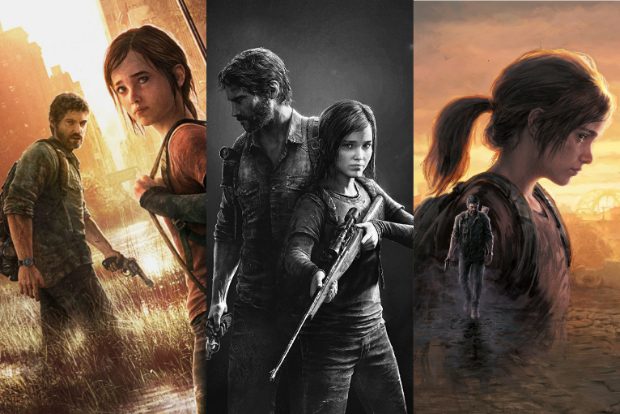
Now the creative duo returns for a second season, premiering on April 13, 2025. This new chapter will adapt roughly half of 2020’s The Last of Us Part II, with Mazin likening it to an Empire Strikes Back-style middle chapter. Against considerable odds, early reviews suggest they have pulled it off magnificently, delivering another remarkable run of episodes that maintain the high quality of craft and emotional resonance of the first season.
Where We Left Off: Season 1 Recap
For those needing a refresher, Season 1 followed Joel (Pedro Pascal) and Ellie (Bella Ramsey) as they traversed a devastated United States from Boston to Salt Lake City. Their mission was to deliver the seemingly immune Ellie to the Fireflies, a rebel group hoping to develop a vaccine. The journey took them through abandoned quarantine zones, fungal-infested buildings, and perilous human settlements.
The series delivered several standout episodes that showcased the brutal yet beautiful world of The Last of Us. “Long, Long Time” told the poignant love story of Bill (Nick Offerman) and Frank (Murray Bartlett), while “Left Behind” explored Ellie’s past with her friend Riley.
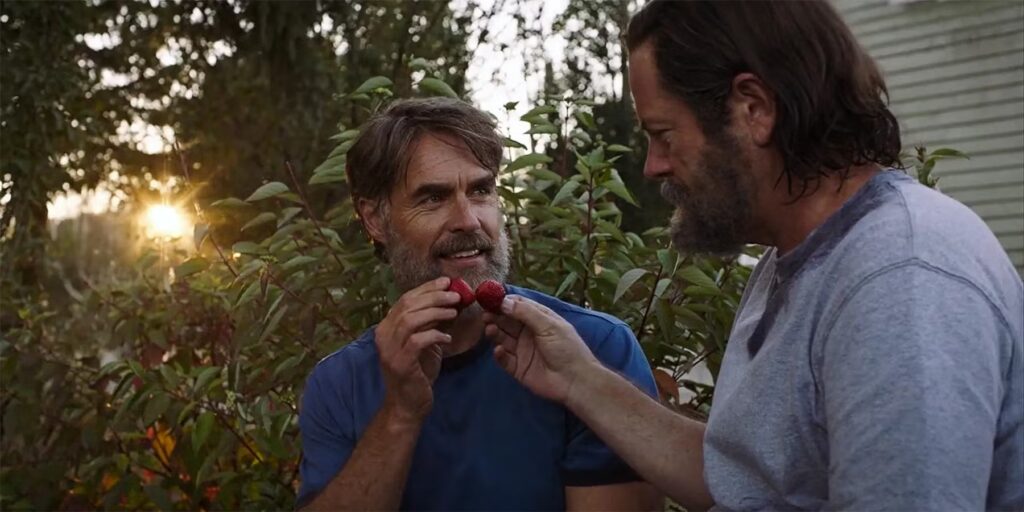
Perhaps the most disturbing and tension-filled episode was “When We Are in Need”, which introduced the sinister David (Scott Shepherd), a charismatic preacher leading the survivor community of Silver Lake. What began as Ellie hunting for medicine to save an injured Joel quickly descended into horror as David was revealed to be a manipulative cannibal with predatory intentions towards Ellie.
The episode was masterfully crafted to build dread at every turn—from David’s initial friendly façade to his chilling admission that his community had been eating human flesh without everyone’s knowledge. His disturbing philosophy comparing his leadership to the Cordyceps fungus (“It feeds and protects its children, and it secures its future with violence if it must. It loves”) represented the darkest side of survival in this collapsed world.
Ellie’s harrowing escape from David’s clutches, culminating in a brutal confrontation where she repeatedly stabbed him while Joel arrived to comfort her (“Baby girl, it’s okay”), showcased both her resilience and vulnerability—themes that will continue to be explored in Season 2.
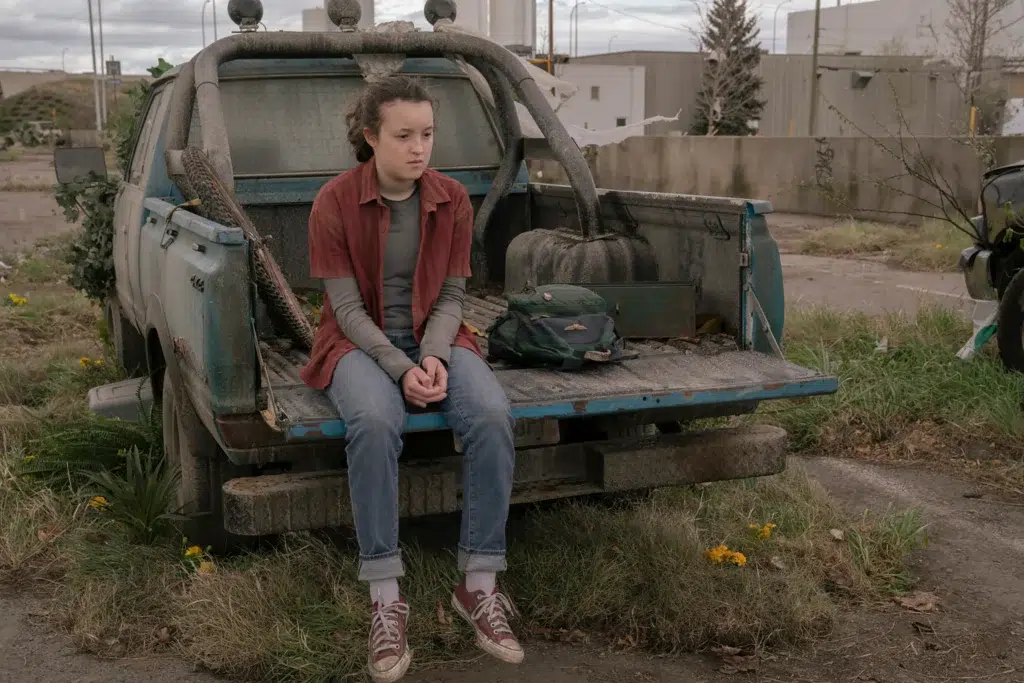
The season culminated in Joel’s controversial decision to massacre the Fireflies rather than allow them to perform a lethal operation on Ellie that might have created a vaccine. He then lied to Ellie about what happened, claiming the Fireflies had already failed to develop a cure and no longer needed her.
Five Years Later: New Beginning
Season 2 picks up five years after these events, with Joel and Ellie now settled in the thriving community of Jackson, Wyoming. Some semblance of normality has been established, but their relationship has deteriorated, weakened by Ellie’s teenage moodiness and her lingering suspicion that Joel isn’t telling the truth about what happened with the Fireflies.
The writing team, which includes Mazin, Druckmann, and the game sequel’s co-writer Halley Gross, crafts a story that feels deeply authentic, with each narrative beat showing careful consideration for character development and relationship dynamics. The performances from Pascal and Ramsey continue to ground this fantastical world in genuine human emotion.
New and Returning Cast Members
While Pedro Pascal and Bella Ramsey return as Joel and Ellie, Season 2 introduces several crucial new characters from the game:
Kaitlyn Dever as Abby – Described by HBO as “a skilled soldier whose black-and-white view of the world is challenged as she seeks vengeance for those she loved.” In the game, Abby was voiced by Laura Bailey and is one of the most controversial yet complex characters in the story.
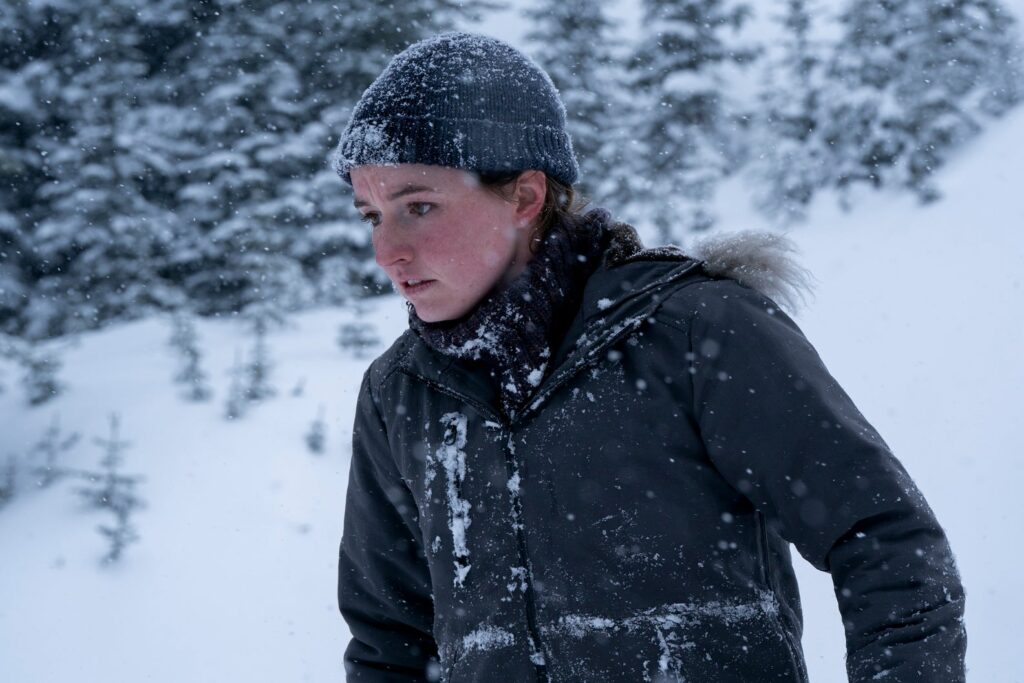
Isabela Merced as Dina – Ellie’s love interest and a significant character in her emotional journey. The official description calls her “warm, brilliant, wild, funny, moral, dangerous and instantly lovable.” In the game, Dina was voiced by Shannon Woodward.
Young Mazino as Jesse – A community leader in Jackson described as “a pillar who puts everyone else’s needs before his own, sometimes at terrible cost.” Jesse was Dina’s ex-boyfriend in the game.
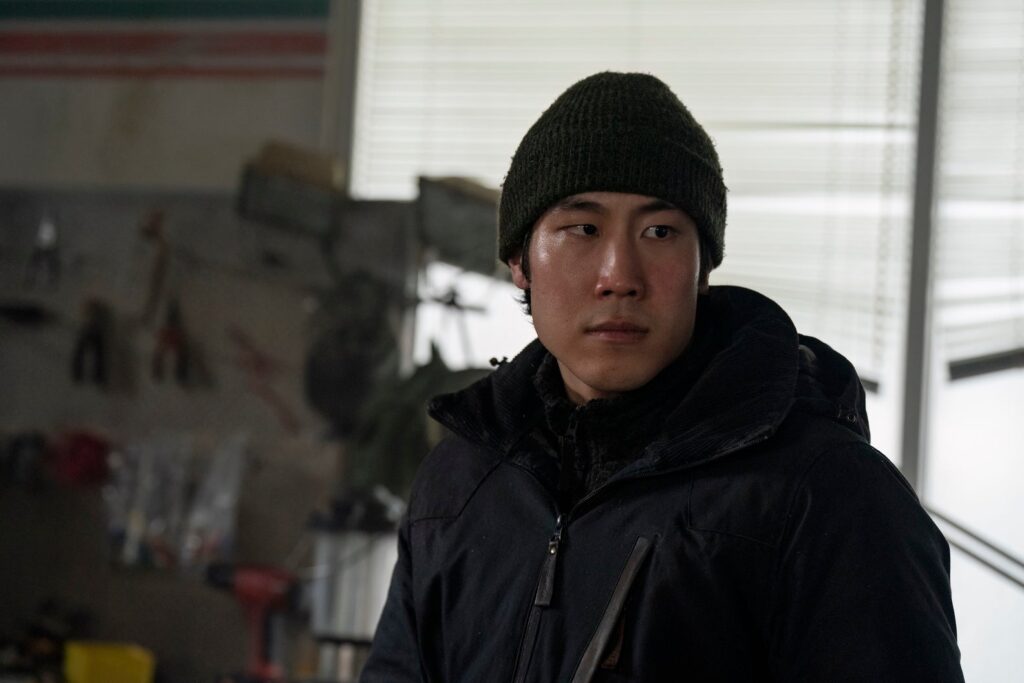
Jeffrey Wright as Isaac – Wright reprises his role from the game as the ruthless leader of the Washington Liberation Front (WLF), a militant group that plays a major role in the story.
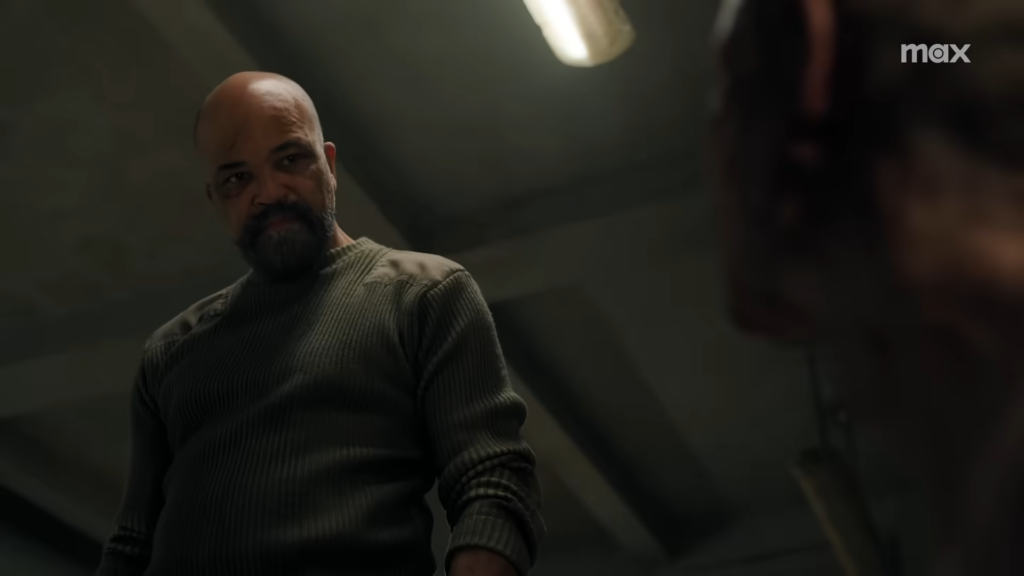
Catherine O’Hara as Gail – A completely new character created for the show who serves as Joel’s whiskey-chugging therapist, helping him process the trauma of his past decisions.
The expanded cast also includes:
- Danny Ramirez as Manny – A loyal WLF soldier described as having “a sunny outlook that belies pain of old wounds”
- Ariela Barer as Mel – A WLF medic “whose commitment to saving lives is challenged by war and tribalism”
- Tati Gabrielle as Nora – A military medic “struggling to come to terms with the sins of her past”
- Spencer Lord as Owen – Described as “a gentle soul trapped in a warrior’s body, condemned to fight an enemy he refuses to hate”
Returning from Season 1 are Gabriel Luna as Tommy (Joel’s brother) and Rutina Wesley as Maria (Tommy’s wife), both of whom will play more significant roles this season.
Expanding the World: New Characters and Storylines
Season 2 also introduces several smaller characters from the game with expanded roles, including:
- Joe Pantoliano as Eugene – Described in the game as Dina’s pot-smoking friend, his character will be more developed in the show
- Robert John Burke as Seth – The bar owner from Jackson who had a brief but memorable interaction with Ellie in the game
- Noah Lamanna as Kat – Mentioned in the game as Ellie’s former girlfriend before the events of Part II
Druckmann has expressed excitement about expanding these characters, saying: “I get excited when I see these opportunities. I’m like, ‘Oh, I don’t know Eugene that well!’ The story we told [in the game] was somewhat superficial. The way this character comes in really gets to the heart of Joel and Ellie and their relationship.”
Epic Scale and Intimate Stories
Episode two of the new season promises one of television’s most ambitious action sequences, as Jackson faces an attack from a massive horde of infected. The town’s strategic, trained-for response includes catapulted barrels of oil, snipers facing off against ‘runners’, and flamethrowers battling ‘bloaters’. In terms of scale and cinematic execution, this sequence reportedly rivals some of the most celebrated battle episodes from Game of Thrones.
Yet for all the spectacle, the focus remains intensely human. One episode serves as an extended flashback to the intervening years between seasons, capturing the innocence and wonder that Ellie briefly experienced during more peaceful times—making the impending tragedy all the more affecting.
Confronting Controversial Material
The Last of Us Part II divided players with its bold narrative choices and challenging themes. Rather than shying away from this controversy, Mazin and Druckmann have embraced it, believing television offers a unique opportunity to explore these themes from a different perspective.
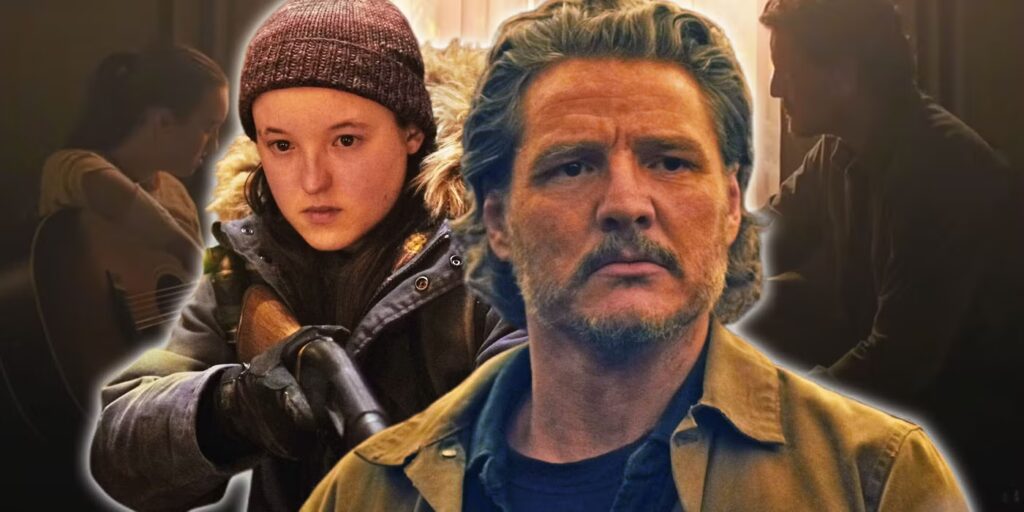
The season delves deeply into the cycle of violence and the thin line between revenge and justice. As Ellie’s love interest Dina observes at one point, “There’s no right answer” to the moral questions posed in this harsh world. The arrival of Abby forces both characters and viewers to confront uncomfortable truths about perspective and how we justify our actions.
Visual and Audio Excellence
The production design continues to impress with its balance of beauty and horror. Ivy-covered buildings, strange fungal blooms, and abandoned cityscapes create a world that’s simultaneously terrifying and hauntingly beautiful. The cinematography draws inspiration from the game’s visual language while Gustavo Santaolalla’s evocative score once again provides the perfect emotional backdrop.
This attention to detail extends to the infected creatures, with the makeup and effects teams creating increasingly horrifying iterations of the cordyceps-ravaged humans. The bloaters in particular—massive, fungal-covered behemoths—are reported to be even more terrifying than in Season 1.
Beyond the Game: How the Show Diverges
While remaining faithful to the core narrative of The Last of Us Part II, the show makes several significant departures to better suit the television medium. The most notable is the addition of Catherine O’Hara’s character Gail, who provides Joel with a therapeutic outlet that wasn’t present in the game.
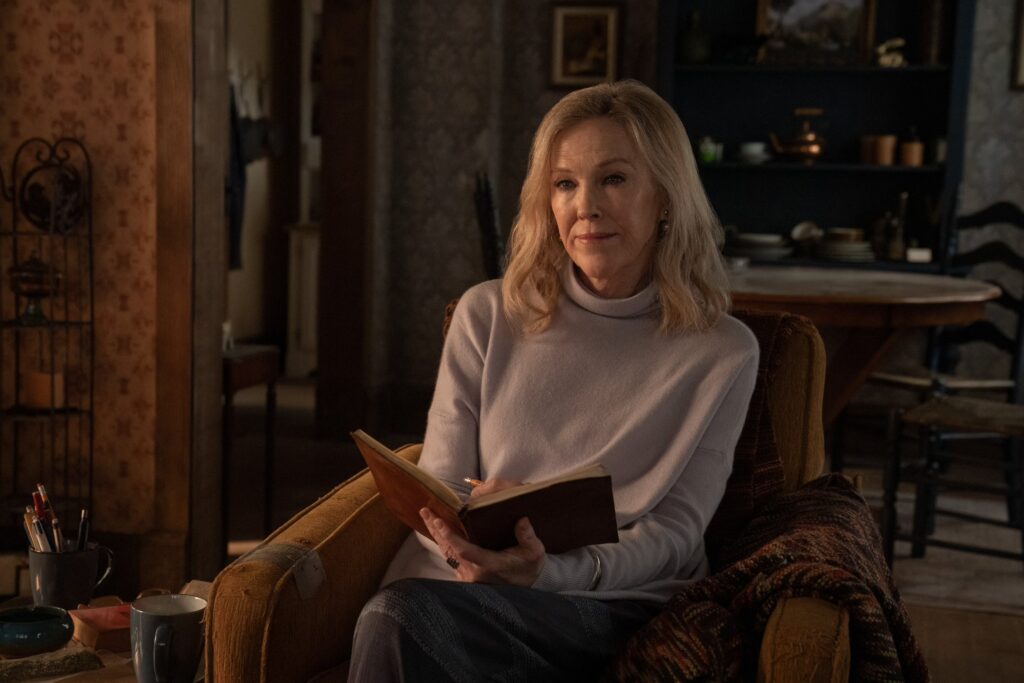
The decision to split the game’s story across multiple seasons also allows for more character development and world-building than was possible in the interactive medium. Secondary characters receive expanded storylines, and new scenes explore relationships and motivations that were only hinted at in the source material.
What to Expect: Themes and Tone
The second season maintains the delicate tonal balance that made its predecessor so compelling. Despite the undeniably bleak subject matter, moments of tenderness, humour, and genuine human connection punctuate the darkness. The romance between Ellie and Dina provides a particular bright spot, offering warmth amidst the surrounding harshness.
Thematically, Season 2 explores the consequences of Joel’s actions in the Season 1 finale. His decision to save Ellie at the cost of humanity’s potential salvation carries profound implications, not just for their relationship but for everyone they encounter. The story asks difficult questions about love, loyalty, and whether good intentions can justify terrible acts.
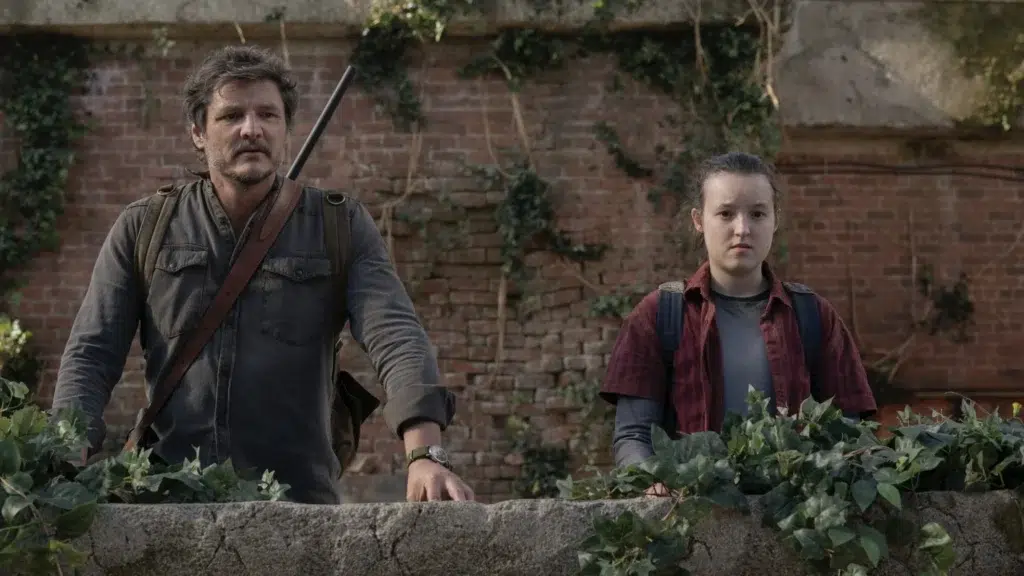
For Fans and Newcomers Alike
For those who played the games, Season 2 offers a new lens through which to experience a familiar story. The showrunners have demonstrated their willingness to remix elements when it serves the television format, often enhancing rather than diminishing the emotional impact.
Newcomers should prepare for an emotionally challenging but ultimately rewarding journey. The stakes are higher, the world is more dangerous, and the characters face trials that will test them in unprecedented ways. However, the strength of the writing and performances ensures that even the darkest moments serve a purpose in this carefully crafted narrative.
The Wait for Resolution
With Season 2 covering only approximately half of The Last of Us Part II‘s story, viewers should expect some form of cliffhanger or unresolved tension by the finale. HBO has already confirmed that a third season is planned to complete the adaptation of the second game, though no premiere date has been announced.
This measured approach allows Mazin and Druckmann to give proper weight to pivotal moments without rushing through the complex emotional arcs that define the game. By taking their time with the material, they continue to set a new standard for how video game adaptations can be approached with respect, creativity, and emotional intelligence.
